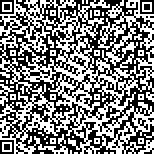| 摘要: |
| 目的 休闲农业是推动乡村产业兴旺、实现农民生活富裕的重要手段,对促进农村产业融合、全面推进乡村振兴意义重大。在城市居民消费转型升级背景下,都市休闲农业旅游消费意愿与消费行为之间的偏差普遍存在,而深入探究休闲农业“行意悖离”背后原因,有利于从消费者角度反思当前休闲农业发展的短板问题。方法 文章结合文献与调研资料,从消费者的个体特征、认知情况、出行需求三方面选取相关指标,运用Logistic回归模型分析市民休闲农业旅游行为与意愿悖离的影响因素,并利用解释结构模型(ISM)分析各因素之间的逻辑关系。结果 (1)家庭特征显著影响休闲农业行为与意愿的悖离:家庭收入水平抑制悖离、家庭同居成员数加剧悖离;(2)消费者亲近自然的需求会抑制休闲农业“行意悖离”,但满足好奇及教育子女的需求会加剧悖离;(3)出行需求和感知了解程度是影响休闲农业行为与意愿悖离的表层直接因素,个体责任感知及社会风气感知是中间间接因素,家庭情况和社会效能感知是深层根源因素。结论 现阶段北京市休闲农业旅游发展水平明显滞后于居民消费需求水平,难以满足都市居民的多样化需求。因此,需完善休闲农业场所综合服务能力,构建创新性休闲农业旅游范式,营造休闲农业旅游消费良好社会风气。 |
| 关键词: 休闲农业 行意悖离 都市消费 行为选择 解释结构模型 |
| DOI:10.7621/cjarrp.1005-9121.20221126 |
| 分类号:F327 |
| 基金项目:国家社会科学基金项目“基于生态工程参与的贫困人口创业驱动机理与实现路径研究”(18BGL052) |
|
| STUDY ON THE DEVIATION BETWEEN BEHAVIOR AND INTENTION OF URBAN LEISURE AGRICULTURAL TOURISMBASED ON SURVEY DATA OF 829 CONSUMERS IN BEIJING |
|
Yang Chenyujing, Yan Shaocong, Xue Yongji
|
|
School of Economics and Management, Beijing Forestry University, Beijing 100083, China
|
| Abstract: |
| Leisure agriculture plays a significant role in promoting the integration of rural industries and the overall revitalization of rural areas. It is a vital way to promote the prosperity of rural sectors and households. Examining the changing consuming behaviors of urban residents, a widespread deviation between the intention and consumption patterns of urban leisure agriculture tourism consumption has been evident. As such, in-depth studies that examine the "behavior-intention contradiction" of leisure agriculture are conducive to developing a consumer-based leisure agriculture in China. Based on the literature and case studies, this paper chose the relevant indicators related to individual characteristics, the cognition situation, and travel demands of consumers, and utilized the Logistic regression model to analyze the influencing factors of the deviation between leisure agricultural tourism behavior and citizens' intention, then the interpretative structural model(ISM) was adopted to examine the logical relationship between each element. We found that family characteristics significantly affected leisure agriculture behavior and intent. At the same time, family income level inhibited deviation, and cohabiting members accelerated deviation. Consumers' demand to access nature could restrain the "action deviation" of leisure agriculture, but the demand to satisfy curiosity and educate children could intensify the deviation. In addition, travel demand and perceived value were the direct external factors influencing the divergence between leisure agriculture behavior and will. And perceptions of individual responsibility and social ethos serve was the intermediate indirect factors. Moreover, family situation and social efficiency perception were the deep root factors. In conclusion, the development level of leisure agriculture in Beijing lags the level of residents' consumption demand, which has become a significant obstacle to meeting urban residents' diversified needs. Therefore, it is necessary to improve the total service capacity of leisure agricultural tourism sites, conduct in-depth research to understand consumer demands, encourage the development model of industry-university-research combination, and build an engaging, diverse, and creative tourism paradigm. |
| Key words: leisure agriculture behavior-intention deviation urban consume behavioral selection interpretative structural model |

